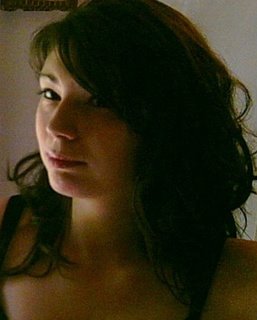Project: TFI
Looked at: Chapter 1-30
Starting word count: 79,352
Ending word count: 81,732
Gain/Loss: +2,380
Biggest Problem: Chapter 28 needed to be completely rewritten.
Favorite line:
Must I really choose just one?
Daily WTF: How did I manage to write an entire chapter that didn't really advance the plot? And how did I not wrap up the biggest subplot in the novel? Beats me.
___________________________________________________________________________________
I'd like to announce that TFI is D.O.N.E! I'm still waiting to hear back from Vic and one other person, but J.M. has the rewrite in her inbox. After six years, I'm ready to wash my hands of this. I'll be sad to see it go, but I plan on moving on to other things very, very shortly. Besides, it's time for TFI to get out and see the world…or at least an agent's inbox.
On the other side of that, J.M. recently agreed to critique an erotica novel. This novel was 133,163 words long. Bugger and blast! 562 pages of bloomin' erotica! J.M. spent two full days straight critting this novel for this chick. The whole time, she was telling me how drawn out it was, but that she wanted to finish it for this person, because that's just how J.M. is. After being tortured by redundant shagging scenes and slogging through a manuscript that's 4/5 dialogue, she reaches the end. Which, she's happy to say, was kinda cool. Overall, it was a dog's dinner.
She sent the crit to the writer, and gets this response. "Don't mind the bluntness in the least, but I'm going to take the "It's too loooong! with a huge grain of salt. It probably IS too long, but I figure if it's accepted my publisher will take a knife to it."
Seriously? You stupid wanker! You really think any agent is going to take a 133k erotica seriously? What agent is going to look at that query and say, "Hmm. A hundred and thirty-three thousand word erotica. Of course I'll take a look at it! I didn't have anything else planned for the next month, so I'll sit here and do the writer's job for them." She's daft, that one.
Sorry sweetheart, but you need to get a grip. You're bloody barmy! It makes me so mad that I'm going British all over the place. Someone was nice enough to slug through your doorstop of a manuscript, and you have the bleedin' audacity to throw all of their time out the window by saying you're not going to change it, because that's the agent/publisher's job? Editing your manuscript is a DIY kind of thing. Don't try to pawn it off on someone who has better things to do with their time.
Agents have clients. Clients are their lifeblood. Successful clients are the ones who pay the agent's rent at the end of the month. You are just some silly bird who wastes three minutes of the agent's time while they read your query, get to the length, laugh, and form reject your stupid arse. At least they might get a kick out of the attempt. If you get anything other than a form rejection, I'll eat my shorts.
I'm definitely in one hell of a nark right now.



